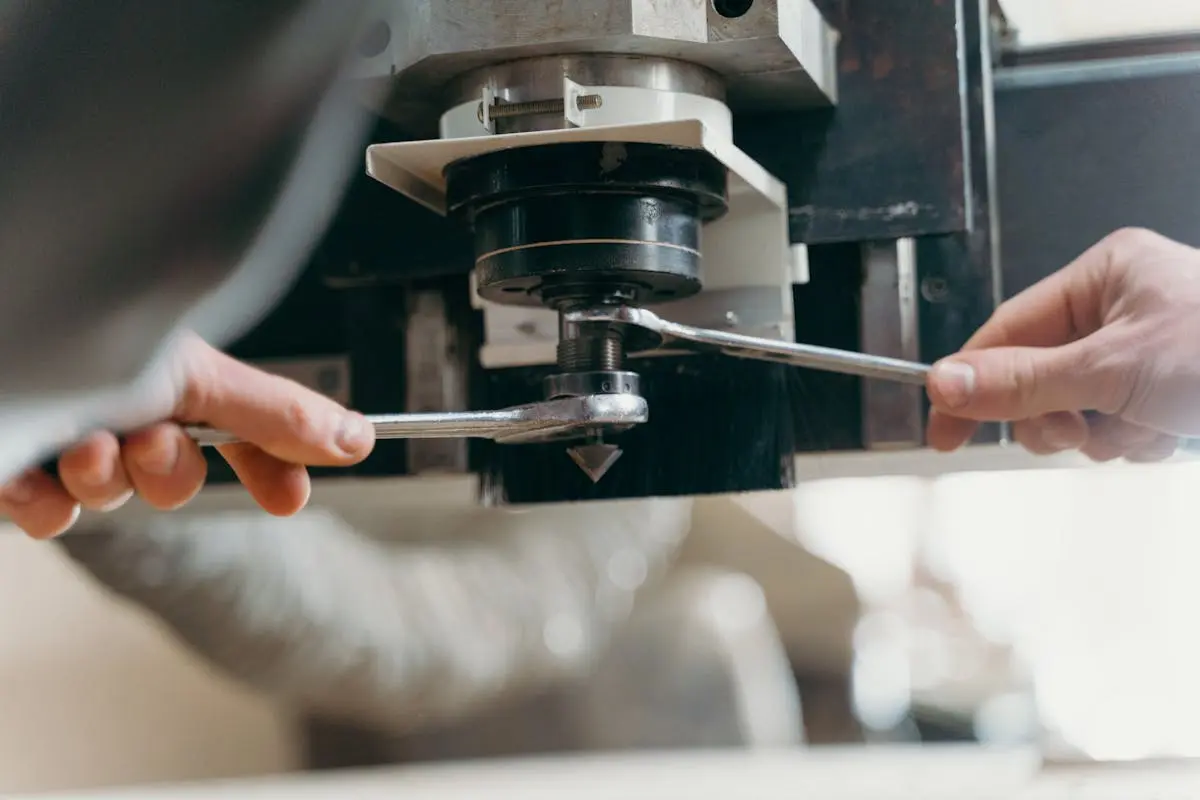Why is Calibration Important for Quality Control Tools?
4th Oct 2024
What is Calibration?
Calibration is the process of comparing measurements taken by a tool to a standard of known accuracy. It involves adjusting the tool to ensure its accuracy and reliability. This process is crucial for maintaining the quality and precision of the measurements taken by the tool.
In the realm of quality control tools, calibration is especially vital. It ensures that the tools provide accurate and consistent results, which are essential for making informed decisions about the quality of products or processes. Without proper calibration, the reliability of the data obtained from these tools is compromised.
The essence of calibration lies in establishing a reference point that the tool can be aligned to. By calibrating a tool, you are essentially fine-tuning it to perform optimally within specified parameters. This adjustment guarantees that the tool operates at its best, giving you confidence in the integrity of your quality control processes.
Furthermore, calibration involves detecting and correcting any deviations or errors in the measurements obtained from a tool. By regularly calibrating your quality control tools, you ensure that any inaccuracies are identified and addressed promptly. This proactive approach helps in maintaining the reliability and precision of your tools over time.
An important aspect of calibration is traceability, which refers to the ability to trace measurements back to a national or international standard. This traceability is crucial in quality control as it establishes a chain of measurement accuracy, providing assurance that the tools used are reliable and conform to industry standards.
Why Calibration Matters for Quality Control Tools
Calibration matters for quality control tools because it directly impacts the integrity and accuracy of the quality control processes. Without proper calibration, there is a risk of incorrect measurements, leading to flawed assessments of product quality. Calibration ensures that the tools deliver consistent and reliable results, forming the foundation of sound quality control practices.
For businesses operating in industries where precision and quality are paramount, calibration is not just a best practice but a necessity. Quality control tools are relied upon to make critical decisions affecting product quality and compliance. Calibration safeguards against errors that could have significant repercussions for both the product and the company's reputation.
Moreover, calibration enhances the credibility of the quality control data generated by the tools. Stakeholders, such as customers, regulatory bodies, and internal management, rely on the accuracy of these data for decision-making. Properly calibrated tools instill confidence in the validity of the results, strengthening trust in the organization's commitment to quality.
In an ever-evolving business landscape, where technological advancements drive efficiency and innovation, calibrated quality control tools become indispensable. They form the basis for monitoring and improving processes, detecting deviations early, and ensuring compliance with quality standards. Calibration is not just about accuracy; it's about empowering businesses to achieve excellence.
The repercussions of neglecting calibration for quality control tools can be severe. Inaccurate measurements can result in defective products reaching the market, leading to customer dissatisfaction and potential recalls. By prioritizing calibration as an integral part of quality control procedures, businesses can mitigate risks, uphold quality standards, and demonstrate their commitment to delivering superior products.
Benefits of Proper Calibration
Proper calibration offers a myriad of benefits for quality control tools and the overall quality management process. One of the primary benefits is improved accuracy, where calibrated tools provide precise measurements that form the basis for quality assessments and decision-making. This precision ensures consistency in product quality and adherence to specifications.
Another significant benefit is enhanced reliability. Calibrated tools are known for their reliability in delivering consistent results over time. This reliability builds trust in the data generated by the tools, enabling stakeholders to rely on them for critical judgments and validations. It also reduces the likelihood of errors caused by inaccurate measurements.
Efficiency is a key advantage of proper calibration. By maintaining calibrated tools, organizations streamline their quality control processes, reducing the time and resources spent on troubleshooting discrepancies. Efficiency gains translate into cost savings and improved productivity, allowing businesses to focus on enhancing overall quality and competitiveness.
Furthermore, proper calibration supports regulatory compliance by ensuring that quality control tools meet the required standards and specifications. Compliance with industry regulations is essential for maintaining the legality and credibility of products in the market. Calibrated tools provide the assurance that quality control practices align with regulatory expectations, safeguarding the business against penalties or sanctions.
An often overlooked benefit of proper calibration is risk mitigation. By regularly calibrating quality control tools, organizations minimize the risk of producing defective products or making erroneous decisions based on flawed data. This proactive approach to risk management protects the brand reputation, enhances customer satisfaction, and fosters long-term success in the competitive market landscape.
Ensuring Accuracy and Consistency
Ensuring accuracy and consistency in quality control tools is a fundamental goal of calibration practices. Accuracy relates to the precision and correctness of the measurements obtained by the tools. Calibration fine-tunes the tools to eliminate errors and deviations, ensuring that the measurements reflect the true values being measured.
Consistency, on the other hand, pertains to the repeatability and reproducibility of the measurements. Calibrated tools provide consistent results under varying conditions, establishing a reliable baseline for assessing product quality and process performance. Consistency is key to detecting subtle changes or trends that could impact overall quality.
By focusing on accuracy and consistency through calibration, businesses elevate the reliability of their quality control processes. Reliable tools instill trust in the data they generate, enabling informed decision-making and proactive quality improvements. Calibration serves as a cornerstone for maintaining the integrity and effectiveness of quality control systems in dynamic industrial environments.
In summary, calibration plays a vital role in ensuring the accuracy, reliability, and consistency of quality control tools. It underpins the quality management processes that drive product excellence, customer satisfaction, and regulatory compliance. By prioritizing proper calibration practices, businesses can enhance their competitiveness, mitigate risks, and uphold the highest standards of quality across their operations.


